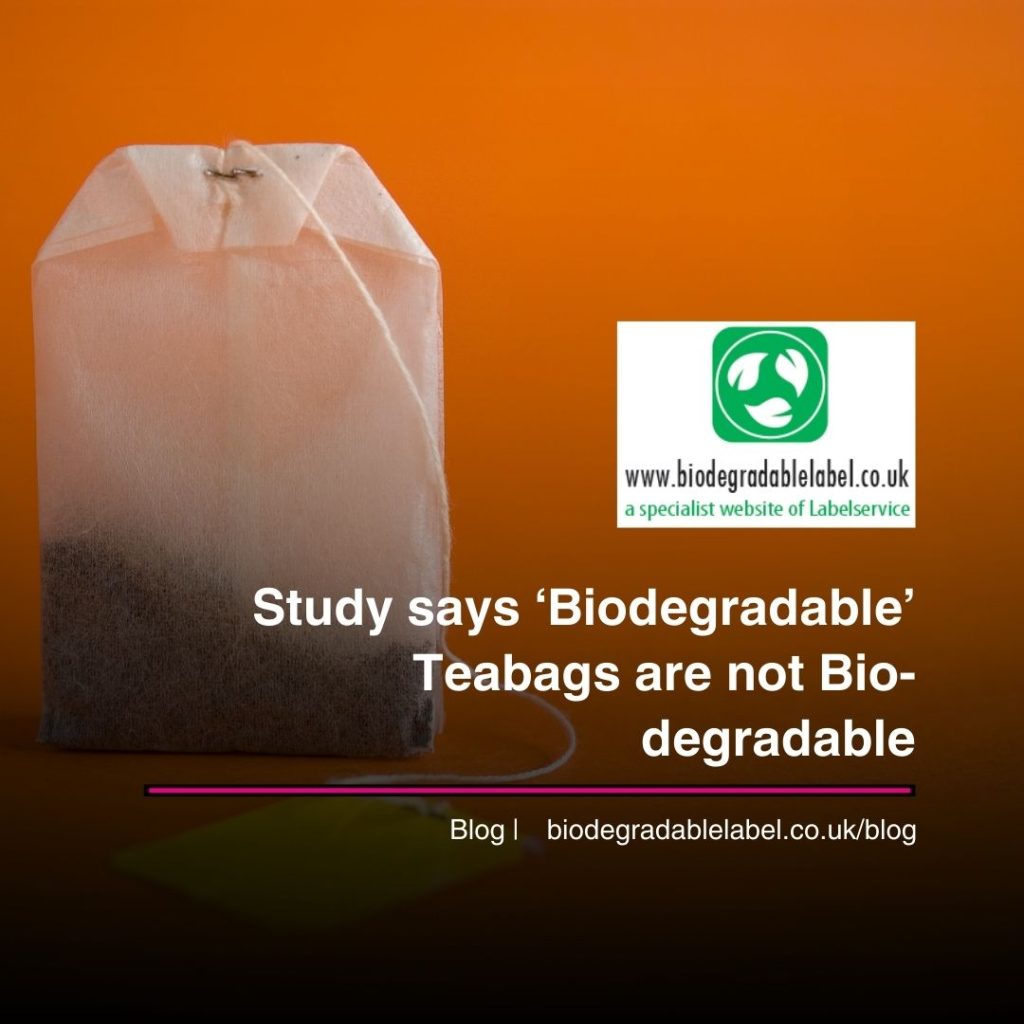Researchers say labelling should be improved to make clear teabags shouldn’t be thrown away in domestic compost heaps. Some teabags manufactured using plastic alternatives do not degrade in soil and have the potential to harm terrestrial species, a new study has shown. Researchers say as we move to reduce our use of plastics these new findings highlight the importance of understanding alternative materials, their impacts and how to dispose of them.
The research looked at commonly available teabags made using three different compositions of polylactic acid (PLA), which is derived from sources such as cornstarch or sugar cane. The teabags were buried in soil for seven months, and a range of techniques were then used to assess whether – and to what extent – they had deteriorated. The results showed that teabags made solely from PLA remained completely intact. However, the two types of teabags made from a combination of cellulose and PLA broke down into smaller pieces, losing between 60% and 80% of their overall mass and with the PLA component remaining.
The study also examined the impacts of the discs cut from the teabags on a species of earthworm, Eisenia fetida, which has a critical role in soil nutrient turnover as it consumes organic matter. Researchers found that being exposed to three different concentrations of teabag discs – equivalent to the mass of half, one and two teabags – resulted in up to 15% greater mortality, while some concentrations of PLA had a detrimental effect on earthworm reproduction.
Only one of the teabag sellers whose products were chosen for the study indicated on the packaging that the teabags were not home compostable. This could lead to them ending up in soil, while there is also a high potential for consumer confusion about the meaning of terms such as plant-based or biodegradable, emphasising the need for clear guidance on appropriate disposal.
The research was conducted as part of BIO-PLASTIC-RISK, a project funded by the Natural Environment Research Council which is assessing how biodegradable packaging and products break down in the environment. It also builds on previous research suggesting that some products labelled as biodegradable, including carrier bags, do not disintegrate after as much as three years in the environment.
The study was published in the wake of the fourth session of the Intergovernmental Negotiating Committee (INC-4), where world leaders and scientists were among those to continue discussions towards the Global Plastics Treaty.
Study co-author Professor Richard Thompson OBE FRS, Head of the University of Plymouth’s International Marine Litter Research Unit and lead of the BIO-PLASTIC-RISK project, is a co-coordinator the Scientists’ Coalition for an Effective Plastics Treaty. He said: “After 30 years of research on plastic pollution I am delighted there is now a global consensus, as evidenced by the UN Plastics Treaty, that current production use and disposal of plastic is unsustainable.
The lack of clear labelling can lead to consumers disposing of teabags in their compost, where any limit to complete degradation of the material raises the potential for plastics to enter the soil when compost is added to the garden, with potential impacts on garden wildlife and uptake by food plants.

